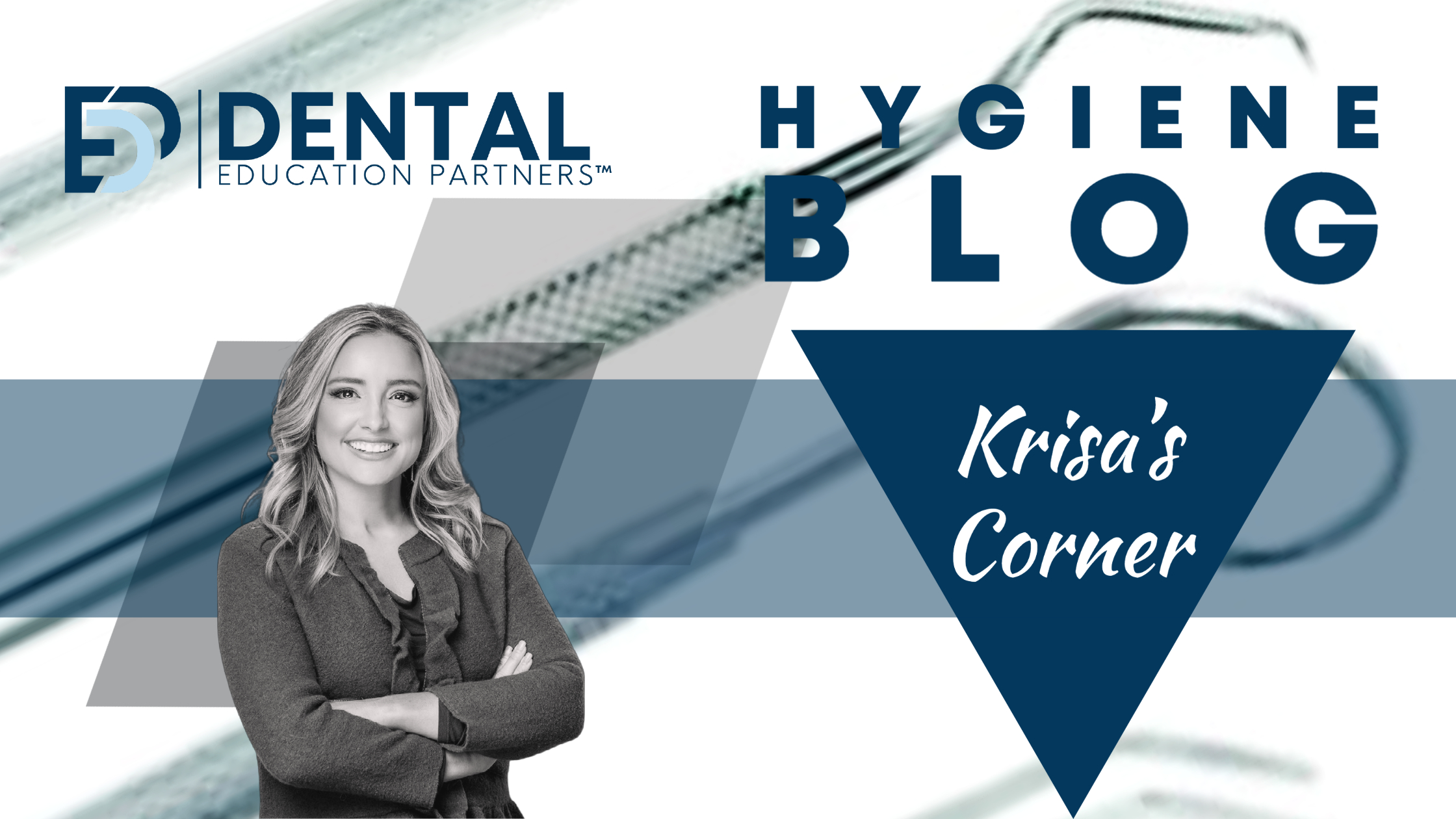Starting a new job as a hygienist, whether you’re new to the field or experienced, the first day typically involves the office manager showing you around, including where to put your things, where the break room is, and where your operatory is. It’s common to be thrown into seeing your first patient right away. Often, when you question why things are done a certain way, the response is simply, “I don’t know, that’s just how it’s always been done.” Much of the knowledge in dentistry is passed down informally, like tribal knowledge. As a new hygienist, there are many challenges to overcome, and in this blog, I will discuss some of these challenges.
1) Team Alignment: Presenting periodontal findings to patients who have been getting regular cleanings for years can be challenging. Therefore, it’s crucial to be familiar with the hygiene philosophy of care and protocol before starting a new job. This allows any concerns to be addressed in advance. Just because you are new to the practice doesn’t mean you have to automatically agree with the way patient care is handled. If there isn’t a protocol in place, it’s a good idea to consider establishing one. If you find yourself needing to present periodontal issues to a patient who has been receiving routine cleanings, remember that it’s about showing genuine concern, not about being aggressive. Using phrases like, “Today, I am noticing a change” followed by, “The good news is, I can take care of that today,” can help soften the impact and build trust.
2) Addressing Concerns with Patients: It’s crucial to communicate clearly with patients, even if it means addressing difficult topics. Be direct and compassionate in your approach to their care. Ask for their permission to express a concern or to ask them questions about their oral health. Use open-ended questions to keep the dialogue going. This approach ensures effective communication and makes you feel confident and capable in your role as a new hygienist.
3) Time management: Managing your schedule effectively is crucial for providing quality care to your patients. It is important to be thorough and intentional with your care. However, it is also a business and learning how to navigate the demands of the schedule will help us to be more efficient. Preparing for the day is essential by doing chart prep ahead of time. Have a plan for each patient each day. This approach not only ensures efficient patient care but also makes you feel organized and in control of your workload.
4) Doctor/Hygiene Handoff: If you joined a multi-doctor practice, you would quickly need to understand what each doctor wants from their handoff and how they approach their care for their patients. Having a doctor/hygiene handoff protocol is crucial. Do not be afraid to ask if there is a protocol. Never assume there isn’t. Maybe they had one but haven’t really been following the protocol. This may spark a conversation and bring about needed change. Regardless, it is important to have everyone on the same page and be consistent among team members so that patients get the same experience no matter who they see.
5) Building relationships: Building relationships with patients takes time. It usually takes about six months to get to know your patients as they return for regular appointments. Taking personal notes is a good way to establish a connection with the patient; for example, when they go on vacation, if someone in the family gets married or has a baby, take notes so that you can ask them about it at the next visit. This is the beginning of establishing rapport. It is important to remember that there is a difference in being personable without being too personal. It is important to keep the focus on
them unless they ask about you. Learning how to be personal, professional and stay on time, is always the key to a successful hygiene appointment with the primary focus being on their healthcare. I would recommend that you spend only 5 minutes talking about personal info and keep the rest of the appointment about getting your assessments and focusing on excellent patient care. Being personable, compassionate, and efficient goes a long way. Not many people like to visit the dentist, so having a smile on your face and making a patient feel at ease is sometimes all they need.
In conclusion, starting a new job as a Hygienist can be both challenging and rewarding. By addressing team alignment, effectively communicating with patients, mastering time management, understanding the doctor/hygiene handoff, and building strong patient relationships, you can overcome these challenges and thrive in your role. Embracing these key aspects will not only help you provide excellent patient care but also contribute to a positive and fulfilling work environment. Remember that as you navigate through these challenges, your dedication and determination will have a lasting impact on the overall quality of care you provide. Good luck in your new role!




